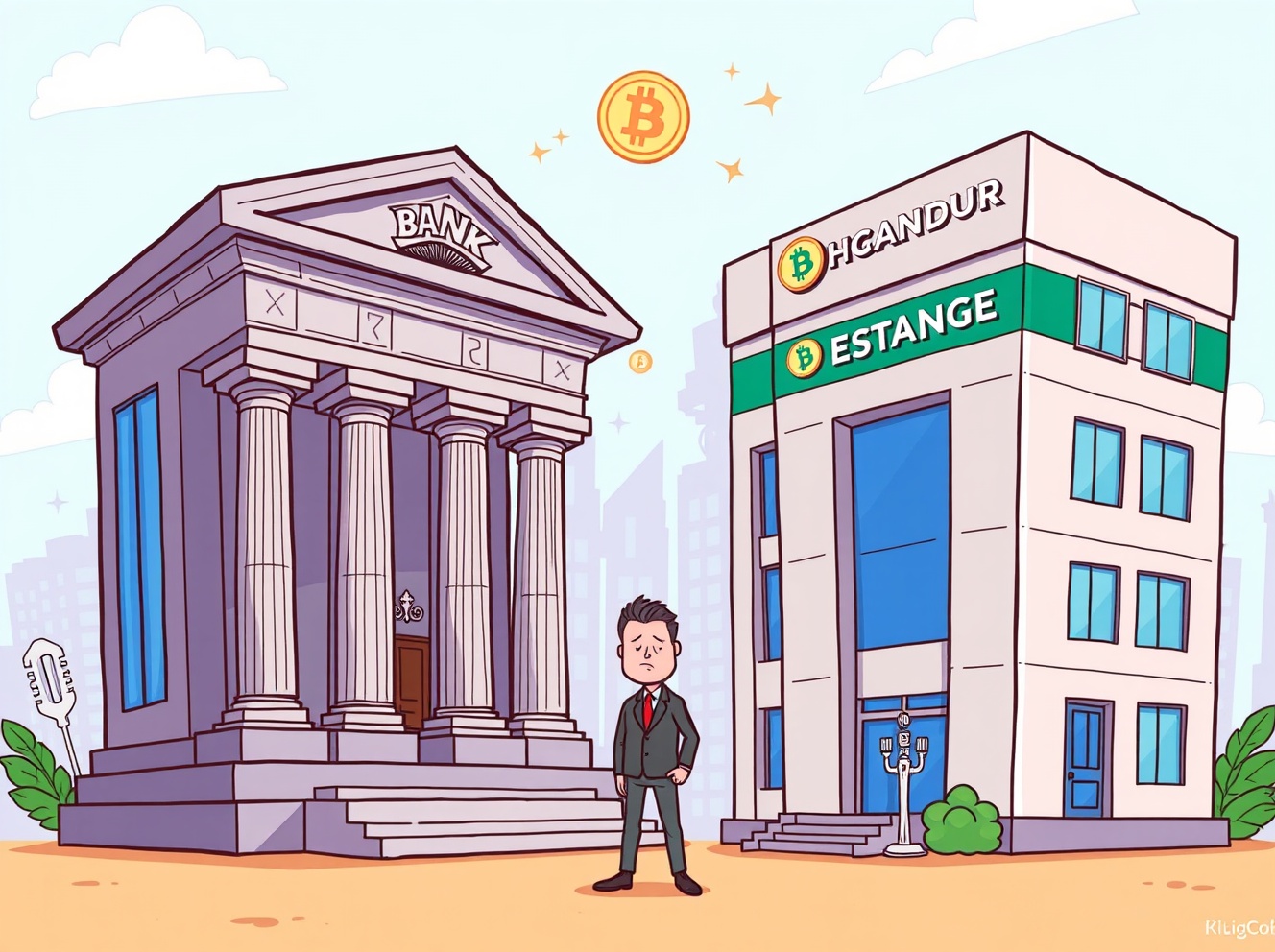
Ripple is partnering with Mastercard, Webbank, and Gemini to test stablecoin settlement using its U.S. dollar–backed RLUSD on the XRP Ledger, marking a step toward merging blockchain efficiency with traditional finance (TradFi). Ripple, Mastercard, Gemini, and Webbank Collaborate on RLUSD Blockchain Settlement Initiative Ripple announced the collaboration during Ripple Swell 2025 event in New York,
Bitcoin.com
You can visit the page to read the article.
Source: Bitcoin.com
Disclaimer: The opinion expressed here is not investment advice – it is provided for informational purposes only. It does not necessarily reflect the opinion of BitMaden. Every investment and all trading involves risk, so you should always perform your own research prior to making decisions. We do not recommend investing money you cannot afford to lose.
Franklin Templeton Files Key Amendment for XRP Trust, Eyes NYSE Arca Launch

Franklin Templeton has filed Amendment No. 3 for its Franklin XRP Trust ETF, marking the final procedural step toward launching the first U.S. spot XRP ETF on NYSE Arca. The Bitcoin.com

Critical Challenge: US Banking Group Opposes Coinbase’s Trust Bank Charter Bid
BitcoinWorld Critical Challenge: US Banking Group Opposes Coinbase’s Trust Bank Charter Bid The world of finance is constantly evolving, with traditional institutions often finding themselves at a crossroads with innovative new players. Currently, a significant debate is unfolding concerning a major cryptocurrency exchange’s ambition to bridge this gap. This discussion centers around the Independent Community Bankers of America (ICBA) and their strong opposition to a Coinbase trust bank charter application. What’s the Fuss About the Coinbase Trust Bank Charter? Coinbase, a leading cryptocurrency exchange, has applied to the U.S. Office of the Comptroller of the Currency (OCC) to establish a federally regulated trust bank through a subsidiary. This move is seen by many as a step towards greater legitimacy and integration of crypto into the mainstream financial system. However, the ICBA, representing thousands of community banks across the nation, has voiced significant concerns. They recently sent a formal letter to the OCC, outlining their strong opposition to this application. Their core argument revolves around the potential risks that unproven elements of cryptocurrency, such as custody services, could pose to the stability of the traditional financial system. This is a critical point for regulators to consider. Why Are Traditional Banks Concerned About Coinbase’s Trust Bank Charter? The ICBA’s opposition stems from several key areas of concern. They highlight the unique characteristics of the crypto market and its potential impact on established banking practices. Unproven Elements: The association argues that crypto custody, a core service for a trust bank dealing with digital assets, lacks the long-standing regulatory framework and historical stability seen in traditional asset custody. This novelty introduces an element of risk. Impact on Traditional Finance: There’s a fear that if a crypto-focused trust were to face significant issues, it could ripple through and negatively affect the broader, more stable traditional financial system. This concern emphasizes the interconnectedness of financial markets. Market Volatility: The cryptocurrency market is renowned for its extreme price swings. The ICBA specifically stressed that the proposed trust would likely struggle to maintain profitability during a crypto bear market, potentially leading to financial instability for the entity. These points underscore the cautious approach traditional banking groups are taking towards the full integration of volatile digital assets. Navigating the Future: What’s Next for the Coinbase Trust Bank Charter? The application for a Coinbase trust bank charter is a significant development, highlighting the ongoing tension between innovation and regulation. The OCC, as the primary regulator for national banks and federal savings associations, faces the complex task of balancing financial stability with fostering innovation. This decision will have far-reaching implications for both the crypto industry and traditional banking. If approved, it could set a precedent for other crypto firms seeking federal charters, potentially accelerating the institutional adoption of digital assets. Conversely, a rejection would reinforce existing regulatory hurdles. Actionable Insights for the Industry: Regulatory Clarity is Key: The debate emphasizes the urgent need for clear, comprehensive regulatory frameworks specifically designed for digital assets. Risk Management Focus: Crypto firms seeking traditional financial licenses must demonstrate robust risk management practices that address the unique challenges of digital assets. Dialogue Between Sectors: Continued communication and understanding between traditional financial institutions and crypto innovators are crucial for navigating this evolving landscape. The outcome of Coinbase’s application for a Coinbase trust bank charter will undoubtedly shape the future trajectory of cryptocurrency integration into the mainstream financial system. It’s a critical moment for both innovation and regulation, with the potential to redefine how we perceive and interact with digital assets. This ongoing discussion underscores the cautious yet necessary steps being taken to integrate the burgeoning digital asset space into established financial frameworks. The decision by the OCC will be a landmark moment, reflecting the careful balance between fostering innovation and safeguarding financial stability. Frequently Asked Questions (FAQs) Q1: What is a national trust bank charter? A national trust bank charter allows an entity to operate as a federally regulated trust bank, offering services like asset custody, estate planning, and wealth management, typically under the supervision of the U.S. Office of the Comptroller of the Currency (OCC). Q2: Why is Coinbase seeking this charter? Coinbase aims to establish a federally regulated trust bank to provide enhanced security, regulatory clarity, and broader institutional access for its cryptocurrency custody and other digital asset services, bringing it closer to traditional financial institutions. Q3: What are the main concerns of the Independent Community Bankers of America (ICBA)? The ICBA is primarily concerned about the unproven nature of cryptocurrency custody, the potential negative impact on the traditional financial system, and the proposed trust’s ability to remain profitable during volatile crypto bear markets. Q4: How could this decision impact the crypto industry? If approved, the Coinbase trust bank charter could pave the way for other crypto firms to gain federal recognition, accelerating institutional adoption and mainstream integration. A rejection, however, would highlight continued regulatory hurdles for the industry. Q5: What is the role of the U.S. Office of the Comptroller of the Currency (OCC) in this process? The OCC is responsible for chartering, regulating, and supervising all national banks and federal savings associations. Their role is to ensure the safety and soundness of these institutions and to ensure fair access to financial services, making their decision on Coinbase’s application crucial. If you found this article insightful, consider sharing it with your network! Stay informed on the evolving landscape of cryptocurrency and its integration with traditional finance. To learn more about the latest crypto market trends, explore our article on key developments shaping institutional adoption. This post Critical Challenge: US Banking Group Opposes Coinbase’s Trust Bank Charter Bid first appeared on BitcoinWorld . Bitcoin.com











